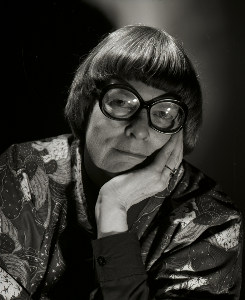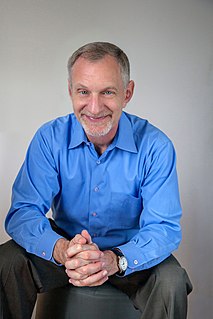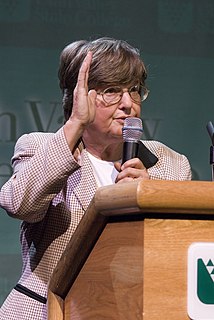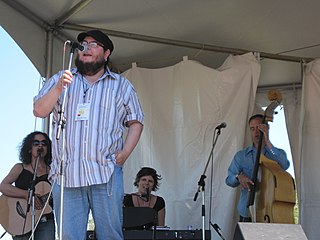A Quote by Jane Rule
People genuinely happy in their choices seem less often tempted to force them on other people than those who feel martyred and broken by their lives.
Related Quotes
Veronika had noticed that a lot of people she knew would talk about the horros in other people's lives as if they were genuinely concerned to help them, but the truth was that they took pleasure in the suffering of others, because that made them believe they were happy and that life had been generous with them
People with a scarcity mentality tend to see everything in terms of win-lose. There is only so much; and if someone else has it, that means there will be less for me. The more principle-centered we become, the more we develop an abundance mentality, the more we are genuinely happy for the successes, well-being, achievements, recognition, and good fortune of other people. We believe their success adds to...rather than detracts from...our lives.
Anger is a passion, so it makes people feel alive and makes them feel they matter and are in charge of their lives. So people often need to renew their anger a long time after the cause of it has died, because it is a protection against helplessness and emptiness just like howling in the night. And it makes them feel less vulnerable for a little while.
People relate to things that feel real to them. All the good, happy, over-sexed and moneyed endings on TV are not the way most of us feel in our lives. The success of 'E.R.,' I think, is not relying on overly sentimental stories that are solved where people's lives wrap up nicely with happy endings.
In fiction, I exercise my nosiness. I am as curious as my cats, and indeed that has led to trouble often enough and used up several of my nine lives. I am an avid listener. I am fascinated by other people's lives, the choices they make and how that works out through time, what they have done and left undone, what they tell me and what they keep secret and silent, what they lie about and what they confess, what they are proud of and what shames them, what they hope for and what they fear. The source of my fiction is the desire to understand people and their choices through time.
I'm not the only kid who grew up this way, surrounded by people who used to say that rhyme about sticks and stones, as if broken bones hurt more than the names we got called, and we got called them all. So we grew up believing no one would ever fall in love with us, that we'd be lonely forever, that we'd never meet someone to make us feel like the sun was something they built for us in their toolshed. So broken heartstrings bled the blues, and we tried to empty ourselves so we'd feel nothing. Don't tell me that hurts less than a broken bone...


































